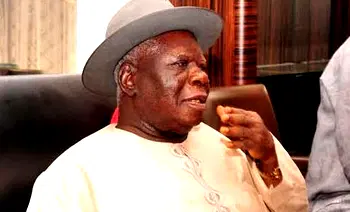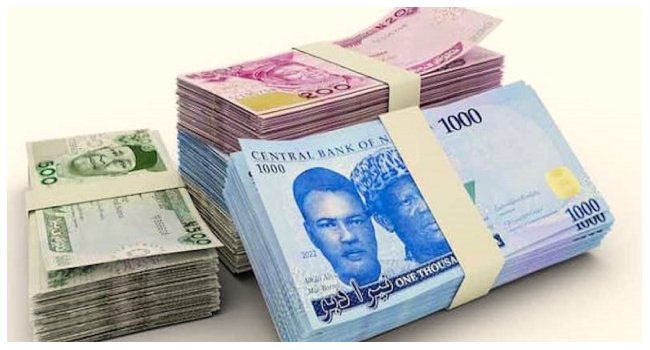Profound statements of Chief Edwin Kiagbodo Clark on issues during his life’s time
Over the years, Clark has made several important statements that reflect his commitment to justice, equity, and progress. Below are some of the most notable statements and contributions that have had a lasting impact on Nigerian politics. Sultan Rabiu compiles some of his outstanding comments and remarks in this write up.
Clark Edwin On Bad Governance
“In advanced countries, when you are living above your means, people query you. That’s not so in Nigeria. Former governors and lawmakers are now asking for immunity,” he said.
“In an ideal society, when a man earns 20,000 as his monthly salary and all of a sudden, he acquires something that is worth N100,000, he should be questioned, but here in Nigeria, immunity has covered those that should be questioned. That is not the kind of country that we want.”
Advocacy for National Unity
Despite his strong advocacy for regional rights, Chief Clark has also been a strong proponent of national unity. He has called for peaceful coexistence among Nigeria’s diverse ethnic groups and believes that the country’s strength lies in its unity. He has repeatedly stressed that for Nigeria to grow and prosper, all ethnic groups must work together to foster peace and understanding. Clark’s stance on unity can be summarized by his statement: “We are all one, irrespective of our differences. Anybody who believes Nigeria should not be one, or we are one by mouth, or some people are oppressed or intimidated, then there is no country. We cannot discriminate against our citizens. We must see ourselves as equals. That’s what I’m fighting for. I’m a Nigerian. I will not keep quiet if my people are suffering. If one side of the country is suffering, I believe we all belong to this country,” he said.
Advocacy for Niger Delta Rights
As a leading voice from the Niger Delta region, Clark has consistently championed the rights of his people, emphasizing the need for equitable resource distribution. One of his most significant statements came during his support for the creation of the Ministry of Niger Delta Affairs.
He argued that the region, which is the backbone of Nigeria’s oil production, has been grossly neglected and exploited. Clark has been at the forefront of efforts to ensure that the region’s people benefit from the wealth generated by their lands.
He has called for the implementation of policies that would ensure the environmental rehabilitation of the Niger Delta and greater political representation for the region. According to Clark, “The Niger Delta people deserve a fair share of the resources extracted from their land.”
Federalism and Restructuring:
A staunch advocate for true federalism, Chief Clark has spoken extensively on the need for Nigeria to be restructured in order to give more autonomy to the regions. He has consistently criticized the current structure of the Nigerian state, which he believes has concentrated too much power in the hands of the central government. Clark has argued that the current structure stifles the potential of the various regions and limits local governance.
He believes that restructuring would lead to more efficient governance, better resource allocation, and regional development. His calls for restructuring are rooted in the belief that Nigeria’s unity can only be achieved if the various ethnic groups are treated fairly and equitably. Clark once stated, “Restructuring does not mean secession or the break-up of the country. We need a united Nigeria, but it must be based on fairness, equity and justice,” elder Clark said in an interview with the punch newspaper in July 2017. “There won’t be peace in Niger Delta without restructuring.”
During the celebration of his 97th birthday
The Elder statesman said, “This country must be restructured. President Bola Tinubu should face the political problem of this country for the development of all regions. This country has to be restructured so that everybody will be equal; so that every Nigerian can aspire to the position he wants to be.”
Ethnic and Regional Inclusivity
Clark has always been an advocate for the recognition and inclusion of all ethnic groups in Nigeria’s political and economic decision-making. He has been particularly vocal about the marginalization of the South-South and South-East regions in terms of political representation. Clark believes that political power should be shared more equitably among Nigeria’s diverse ethnic groups to prevent the feeling of alienation. One of his most poignant statements was on the need for the country’s leadership to be representative of all regions, saying, “Leadership in Nigeria should reflect the diversity of its people and respect the contributions of all regions.”
Opposition to Political Injustice
Clark has also been a fierce critic of political injustice and the abuse of power in Nigeria. He has consistently called out unfair practices in Nigerian politics, including electoral fraud, corruption, and human rights violations. During the tenure of various administrations, Clark has raised concerns about the lack of transparency and the failure to adhere to democratic principles.
“Politicians are mostly the most corrupt people in Nigeria. That is why every governor wants to become a senator so that he will continue to enjoy immunity from probe and prosecution for corrupt practices.”
He has been an advocate for the independence of the judiciary, the rule of law, and the protection of the rights of ordinary citizens. One of his memorable quotes in this regard is: “Nigeria’s democracy is under threat, and the people’s voices must be heard.”



